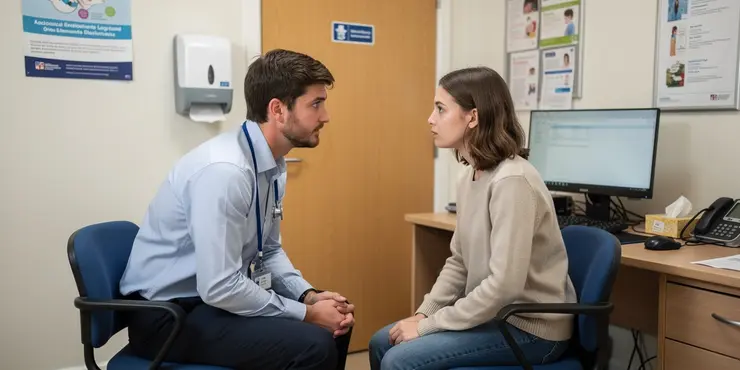
Find Help
More Items From Ergsy search
-
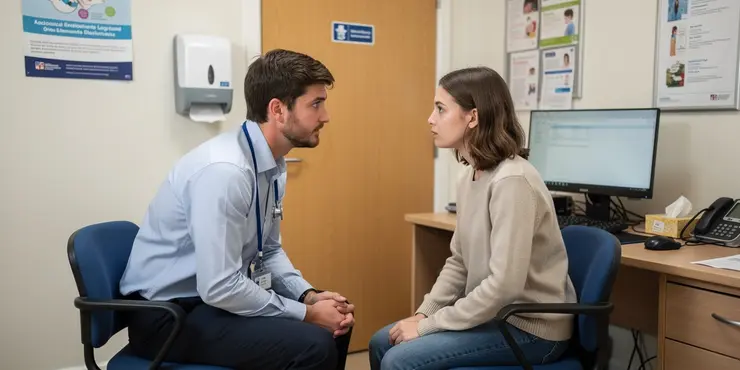
Can meningitis cause long-term complications?
Relevance: 100%
-
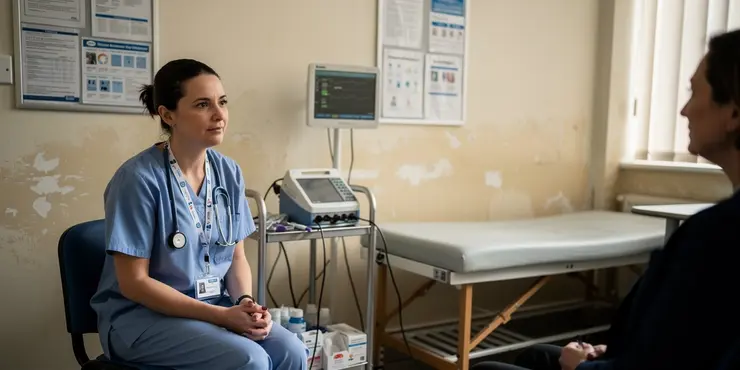
What is the prognosis for viral meningitis?
Relevance: 54%
-

What is meningitis?
Relevance: 54%
-

Why is meningitis a medical emergency?
Relevance: 54%
-

How serious is bacterial meningitis?
Relevance: 53%
-

What causes bacterial meningitis?
Relevance: 53%
-
Can flesh-eating disease cause long-term complications?
Relevance: 52%
-

What are the main types of meningitis?
Relevance: 52%
-

What is non-infectious meningitis?
Relevance: 52%
-
Is meningitis contagious?
Relevance: 51%
-

How is fungal meningitis treated?
Relevance: 50%
-
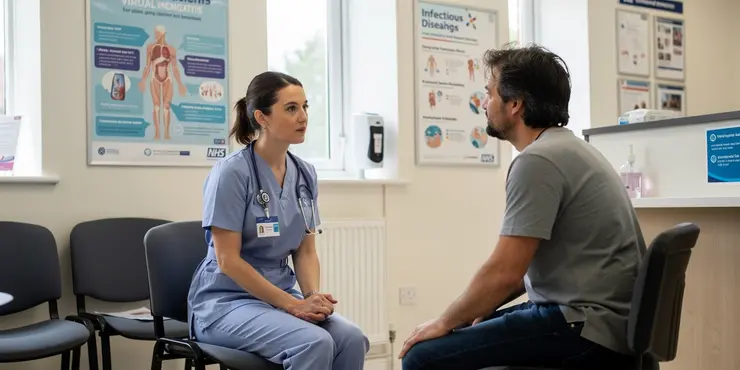
What causes viral meningitis?
Relevance: 49%
-

Are there vaccines for meningitis?
Relevance: 49%
-

How is meningitis diagnosed?
Relevance: 49%
-

What is the treatment for bacterial meningitis?
Relevance: 49%
-

What are the signs of meningitis in infants?
Relevance: 49%
-

Can meningitis be prevented?
Relevance: 47%
-
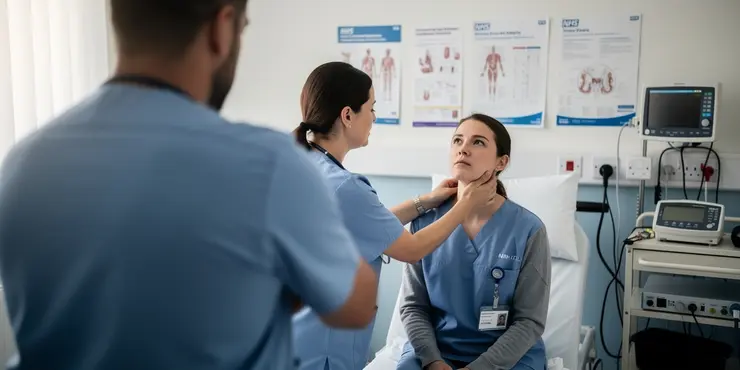
What are common symptoms of meningitis?
Relevance: 47%
-
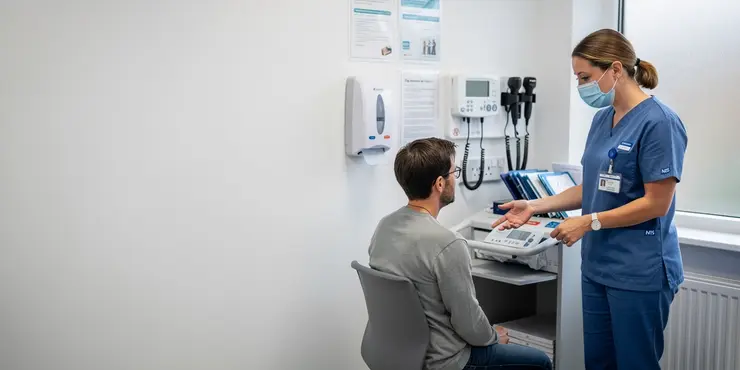
How is viral meningitis spread?
Relevance: 46%
-

Is vaccination recommended for seniors against meningitis?
Relevance: 44%
-

Are adults over 25 recommended for meningitis vaccination?
Relevance: 44%
-

Is meningitis vaccination required for military recruits?
Relevance: 43%
-

Who should get a meningitis vaccination?
Relevance: 43%
-

Does the CDC recommend meningitis vaccines for adolescents?
Relevance: 43%
-

Do international students need the meningitis vaccine?
Relevance: 42%
-

Who is at higher risk of contracting meningitis?
Relevance: 42%
-

Are there any specific groups that should prioritize meningitis vaccination?
Relevance: 42%
-

What are the guidelines for meningitis vaccination for HIV-infected individuals?
Relevance: 41%
-

Do people who have had meningitis in the past need to be vaccinated?
Relevance: 40%
-
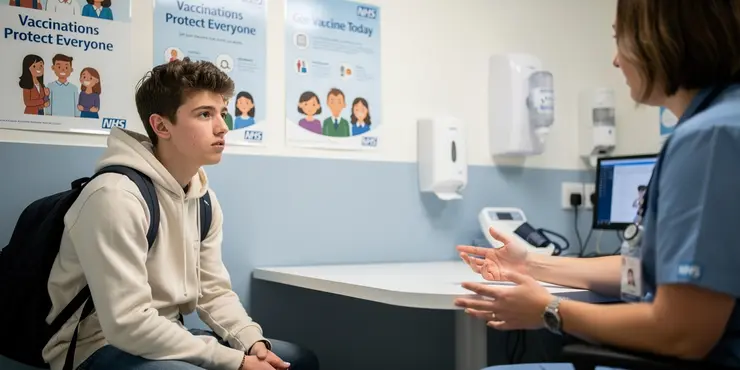
Should college students get the meningitis vaccine?
Relevance: 40%
-

Should health care workers get the meningitis vaccine?
Relevance: 40%
-

What are the complications of chickenpox?
Relevance: 39%
-
What are the meningitis vaccination recommendations for travelers to Hajj or Umrah?
Relevance: 38%
-

Are there any complications associated with shingles?
Relevance: 37%
-

Can measles cause complications?
Relevance: 37%
-
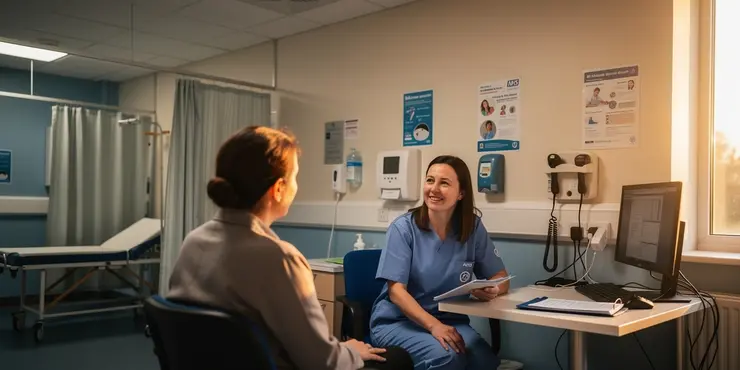
Are there any long-term effects of gonorrhoea?
Relevance: 37%
-

Can scabies cause complications?
Relevance: 36%
-

Are there any complications associated with shingles?
Relevance: 35%
-

What are the potential complications of appendicitis?
Relevance: 34%
-
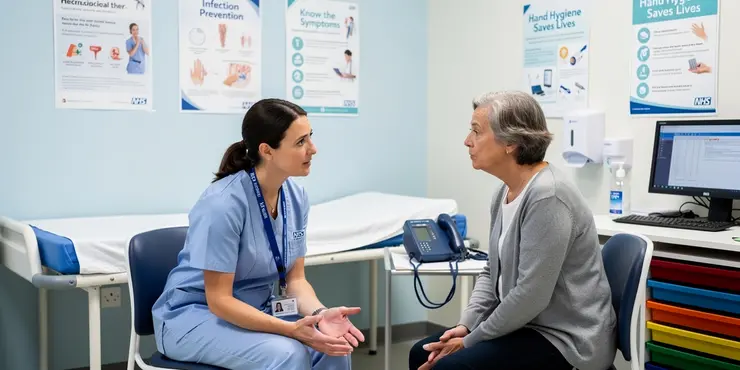
Can Nipah Virus cause neurological complications?
Relevance: 34%
Understanding Meningitis and Its Long-term Impact
Meningitis is an inflammation of the protective membranes covering the brain and spinal cord, known collectively as the meninges. It can be caused by bacterial, viral, or fungal infections, with bacterial meningitis being the most severe form. While prompt treatment can lead to recovery, meningitis can sometimes cause long-term complications, especially if not addressed quickly.
Types of Meningitis and Their Implications
Bacterial meningitis is of particular concern due to its potential for severe long-term effects. Common bacterial strains that may cause meningitis include Neisseria meningitidis and Streptococcus pneumoniae. Viral meningitis is typically less severe than bacterial meningitis, but it can still result in complications, especially if the immune system is compromised. Fungal meningitis, although rare in the UK, can be serious for individuals with weakened immunity.
Potential Long-term Complications
Long-term complications of meningitis can vary based on the severity and type of the initial infection. Some individuals may experience no significant after-effects, while others might face ongoing health challenges. Common long-term complications include hearing loss, cognitive difficulties, and epilepsy. The risk of these complications is higher in patients who experience delayed diagnosis and treatment.
Hearing Loss
Hearing loss is one of the most frequent long-term complications associated with bacterial meningitis. Damage to the inner ear during an infection can lead to partial or complete hearing loss in one or both ears. Regular hearing assessments are recommended after recovery to detect and manage any auditory issues early.
Cognitive Challenges
Some survivors may experience difficulties with memory, concentration, and other cognitive functions. These challenges can affect a person's ability to perform everyday tasks, impacting their quality of life. Rehabilitation therapies, including cognitive behavioral therapy, can be beneficial in managing these issues.
Epilepsy and Seizures
In some cases, meningitis can lead to the development of epilepsy. Seizures can occur due to the scarring of brain tissue during the infection. Patients experiencing seizures post-recovery should seek specialist advice to manage and treat this condition effectively.
Other Possible Complications
Additional long-term effects may include joint stiffness, arthritis, or paralysis, especially if the meningitis was associated with septicaemia. Consistent follow-up care is crucial for addressing these physical challenges, often involving physiotherapy and regular medical check-ups.
Conclusion
While meningitis can lead to severe long-term complications, timely treatment and ongoing medical support significantly increase the likelihood of a good recovery. Awareness and early intervention remain crucial in managing the potential life-altering effects of this condition. If you suspect meningitis, seeking immediate medical attention is paramount to minimising long-term effects.
Understanding Meningitis and Its Long-term Impact
Meningitis makes the coverings around your brain and spine swell up. These coverings are called the meninges. Meningitis can be caused by germs like bacteria, viruses, or fungi. Bacterial meningitis is the most dangerous type. If it's caught and treated quickly, people can get better. But sometimes, if not treated fast, it can cause problems that last a long time.
Types of Meningitis and Their Implications
Bacterial meningitis is very serious because it can cause bad problems that last. Germs like Neisseria meningitidis and Streptococcus pneumoniae are common causes. Viral meningitis is not as serious as bacterial, but it can still cause problems. Fungal meningitis is rare but can be serious, especially if your body is weak.
Potential Long-term Complications
Meningitis can cause different problems later. Some people may not have any problems. Others may have trouble with things like hearing or remembering. The chance of having these problems is higher if the illness wasn't caught and treated quickly.
Hearing Loss
Bacterial meningitis can make it hard to hear or even cause hearing loss. This happens when the infection harms the inner ear. It is important to have hearing checks after getting better to find and fix any hearing problems early.
Cognitive Challenges
Some people might have trouble remembering things or concentrating after meningitis. This can make everyday things harder. Special therapies can help manage these difficulties.
Epilepsy and Seizures
Sometimes, meningitis can cause epilepsy, which means having seizures. Seizures happen when the brain gets scarred from the infection. People with seizures should see a specialist to get the right help.
Other Possible Complications
Other problems can include stiff joints, arthritis, or trouble moving if meningitis happened with blood poisoning. Regular medical check-ups and physiotherapy can help with these problems.
Conclusion
Although meningitis can cause serious problems later, quick treatment can help people get better. Knowing the signs and getting help early can make a big difference. If you think someone has meningitis, get medical help right away to avoid future problems.
Frequently Asked Questions
Can meningitis cause long-term complications?
Yes, meningitis can lead to long-term complications, especially if not treated promptly.
What are some common long-term complications of meningitis?
Common long-term complications include hearing loss, seizures, cognitive difficulties, and motor skill impairments.
How does meningitis lead to hearing loss?
Meningitis can cause inflammation and damage to the inner ear structures, leading to hearing loss.
Is it possible for children to experience developmental delays after meningitis?
Yes, children who have had meningitis may experience developmental delays or learning difficulties.
Can meningitis cause vision problems?
In some cases, meningitis can lead to vision problems such as impaired eyesight or blindness.
What neurological deficits can occur due to meningitis?
Neurological deficits from meningitis can include memory loss, difficulties with concentration, and behavioral changes.
Are there long-term physical disabilities associated with meningitis?
Yes, meningitis can lead to long-term physical disabilities, such as paralysis or reduced coordination.
How does meningitis affect mental health in the long run?
Long-term effects on mental health can include anxiety, depression, and PTSD.
What percentage of meningitis survivors experience long-term complications?
The percentage can vary, but studies indicate that 10-20% of bacterial meningitis survivors may have long-term effects.
How can early treatment of meningitis reduce the risk of complications?
Early treatment with appropriate antibiotics or antivirals can reduce inflammation and prevent brain damage.
What role does vaccination play in preventing long-term complications of meningitis?
Vaccination can prevent certain types of meningitis, thereby reducing the risk of long-term complications.
Are long-term effects of viral meningitis as severe as those of bacterial meningitis?
Viral meningitis is generally less severe and less likely to cause long-term complications than bacterial meningitis.
Is rehabilitation effective for overcoming long-term complications of meningitis?
Rehabilitation, including physical, occupational, and speech therapy, can help survivors manage and overcome long-term complications.
Can cognitive training aid recovery from cognitive deficits due to meningitis?
Cognitive training and therapy can aid in improving memory, attention, and other cognitive functions affected by meningitis.
What are the risks of epilepsy after meningitis?
Some individuals may develop epilepsy as a result of brain damage caused by meningitis.
Can meningitis lead to chronic pain conditions?
While not common, some meningitis survivors may experience chronic headaches or pain related to nerve damage.
How does inflammatory response in meningitis contribute to brain damage?
The body's immune response to infection can cause inflammation, which may lead to swelling and brain damage.
What is the potential impact of meningitis on educational performance?
Children who have had meningitis may have difficulty with learning, requiring special education resources.
How can support groups be beneficial for meningitis survivors?
Support groups can provide emotional support, resources, and shared experiences for those dealing with complications.
Is it common for meningitis survivors to require long-term medical care?
Some survivors may require long-term medical follow-up to manage complications such as neurological problems or hearing loss.
Can meningitis cause problems for a long time?
Yes, meningitis can cause problems that last a long time, especially if it is not treated quickly.
What problems can happen after having meningitis for a long time?
Meningitis can sometimes cause problems that last a long time. Here are some of them:
- Hearing problems
- Memory issues
- Trouble learning new things
- Getting tired easily
- Headaches
- Trouble seeing well
If you need help, you can ask a family member or a doctor. They can help explain things to you. There are also tools like audiobooks to listen to instead of reading.
Sometimes, people can have problems for a long time. They might have trouble hearing, have fits, find it hard to think clearly, or have trouble moving their bodies.
How does meningitis cause hearing loss?
Meningitis is a sickness. It can make parts inside your head swell up. When this happens, it can hurt the parts that help you hear.
If you have meningitis, you might find it hard to hear things.
Ask a doctor if you feel sick or have trouble hearing.
Using pictures or videos can help you understand better. Try using apps that read out loud to you.
Meningitis can make the inner part of your ear swell and get hurt. This can make it hard to hear.
Can children have learning or growth problems after getting meningitis?
Meningitis can make some children have trouble learning or growing like other kids. This might happen after they get better from the sickness. It is important to watch how they grow and learn. Doctors and teachers can help if there are any problems. Parents can use pictures, stories, and games to help their children learn.
Yes, kids who had meningitis might find learning or growing up a bit harder.
Can meningitis make it hard to see?
Meningitis is a sickness that can make your brain and spine swell. This swelling can sometimes hurt your eyes and make it hard to see.
If you feel sick, it is important to see a doctor right away. They can help you get better and check your eyes, too.
If you have trouble reading, you can try using tools that read text out loud or make words bigger on the screen.
Sometimes, when you get meningitis, it can make it hard to see. This might mean your eyesight gets worse or you could even go blind.
What brain problems can happen because of meningitis?
Meningitis can make you sick. Here is what might happen to your brain:
- Trouble seeing clearly (blurry vision)
- Difficulty hearing sounds (hearing loss)
- Problems with speaking or understanding words
- Feeling weak or having trouble moving
- Feeling dizzy or having balance problems
If someone has meningitis, it’s important to see a doctor. They can help treat it.
Here are some things that might help you understand better:
- Ask someone to explain the big words.
- Use pictures to help understand.
- Ask questions if something is confusing.
Meningitis can sometimes cause problems with the brain. This means a person might forget things, find it hard to focus, or act differently.
Can meningitis cause long-lasting body problems?
Meningitis can cause health problems that last a long time. Some people might find it difficult to move or use their body like before.
What is the long-term impact of meningitis on mental health?
Meningitis can make you very sick. It can have effects that last a long time, even after you feel better. These effects can be on your mind and emotions.
Here are some ways meningitis might affect you:
- You might feel sad or worried more often.
- It might be hard to concentrate or remember things.
- You could feel tired or have trouble sleeping.
If you have these feelings, it’s important to talk to someone who can help. Tools like drawings, writing in a diary, or talking with a friend can also help you feel better.
Sometimes, things can happen that make us feel really worried, sad, or scared. This can last for a long time. People might feel:
- Worried and nervous. This is called anxiety.
- Sad and not wanting to do things they used to like. This is called depression.
- Scared about things that remind them of bad times. This is called PTSD.
If you feel this way, you can:
- Talk to someone who can help, like a friend or a therapist.
- Write or draw about your feelings.
- Use apps that help you calm down, like breathing apps.
How many people have problems after getting better from meningitis?
About 10 to 20 out of every 100 people who get better from bacterial meningitis might have problems that last a long time.
How does getting treatment early for meningitis help?
Meningitis is a sickness. It can make you very sick. Getting help from a doctor quickly can stop it from getting worse. This can help keep you safe and make you better.
A good way to help understand more is to use pictures or watch a video about meningitis. Talking with a doctor or nurse can also help you learn what to do.
Starting treatment early with the right medicine can help stop swelling and protect the brain.
How do vaccines help stop long-lasting problems from meningitis?
Vaccines protect us from getting very sick. When we get a vaccine, our bodies learn to fight germs.
Meningitis is a serious illness. It can make our brain and spine swell. This can cause problems that last a long time, like trouble hearing or thinking.
Getting a vaccine can stop us from getting meningitis. This means we won’t have to worry about those long-lasting problems.
If you have questions about vaccines, ask a doctor or nurse. They can help you understand more.
Getting a vaccine can stop some kinds of meningitis. This means fewer people will get sick for a long time.
Is viral meningitis as serious long-term as bacterial meningitis?
Meningitis is when the brain or spine gets sick. There are two main types: viral and bacterial.
Here is a tip: Use pictures and videos to help understand.
Helpful tool: Ask someone to explain things with simple words.
Viral meningitis is usually not as bad as bacterial meningitis. It doesn’t often cause problems that last a long time.
Does rehabilitation help people get better after having meningitis for a long time?
Meningitis is a serious illness. It can make people very sick. Sometimes, even after people get better, they can still have problems. These problems are called long-term complications.
Rehabilitation means getting help to get stronger and better. It can include exercises and different therapies. It helps people improve their movement, speech, and other skills.
Some people find rehabilitation very helpful. It can help them feel better and do more things they like. But, everyone is different. What works for one person might not work for another.
If you want to know if rehabilitation can help you, it's a good idea to talk to a doctor. A doctor can tell you what might work best for you.
Using pictures or videos can make it easier to understand what rehabilitation is. You can also ask someone to explain it to you in a simple way. Taking small steps and setting easy goals can make the process better and less scary.
Getting better, like through physical, occupational, and speech therapy, can help people handle and get past problems that last a long time.
Here are some helpful tools and ideas:
- Physical therapy helps strengthen your body.
- Occupational therapy helps with daily activities.
- Speech therapy helps with talking and understanding words.
Using pictures, videos, or apps might make things easier to understand.
Can brain exercises help people get better from thinking problems caused by meningitis?
Meningitis can make it hard to think: Some people who have had meningitis may find it hard to think clearly or remember things.
What are brain exercises? Brain exercises are activities that help your brain work better, like puzzles or memory games.
How can brain exercises help? Doing these activities might help you think more clearly and remember things better.
Try using these tools and techniques:
- Play memory games: These games are fun and can help you remember things.
- Use apps or websites: There are many online tools and apps that offer brain exercises.
- Do puzzles: Puzzles like crosswords or Sudoku can make your brain stronger.
Brain exercises and talking with a therapist can help you remember things better, pay attention, and do other brain activities. These can help people who have had meningitis.
Can meningitis cause epilepsy?
Meningitis is an illness that makes the brain and spine swollen.
Sometimes, after getting better from meningitis, people can get epilepsy.
Epilepsy means having seizures, which are attacks where your body shakes or you lose control.
If you need help understanding, ask a doctor or nurse.
You can also use pictures or videos to understand better.
Sometimes, people can get a sickness called epilepsy if their brain gets hurt by another sickness called meningitis.
Can meningitis cause long-lasting pain?
Meningitis is when the lining around the brain and spine gets swollen. It can make you very sick.
Some people who get meningitis might have pain for a long time after. This is called chronic pain.
If you or someone you know had meningitis and still has pain, it's important to talk to a doctor.
Using gentle exercises and talking therapies might help manage the pain.
Always ask a grown-up if you need help understanding or need more information.
Sometimes, people who get better from meningitis might still have headaches or feel pain because their nerves got hurt.
How does the body's reaction to meningitis hurt the brain?
Meningitis makes the brain and spinal cord swell up. This swelling can hurt your brain.
This happens because the body tries to fight off the germs that cause meningitis. The body sends lots of special cells to the brain to attack the germs. But, too many cells and too much swelling can squash the brain and cause damage.
To help understand this better, you can:
- Use pictures or diagrams to show how the brain and meningitis work.
- Listen to stories or watch videos about meningitis.
- Ask a teacher or friend to explain it in simple words.
When you get sick, your body tries to fight off germs. This can cause parts of your body to get red, hot, and swollen. This might even hurt your brain.
How can meningitis affect learning at school?
Meningitis is an illness that can make you very sick. It can sometimes cause problems that make learning at school harder. These problems might include:
- Trouble remembering things
- Finding it hard to pay attention
- Feeling very tired
- Getting headaches often
If you have had meningitis and find school difficult, here are some things that might help:
- Taking breaks when you feel tired
- Using pictures or drawings to remember things
- Doing one thing at a time
- Talking to a teacher or helper if you need support
Children who have had meningitis might find learning hard. They may need extra help at school.
How can support groups help people who survived meningitis?
Support groups can be really helpful. They give people a chance to talk to others who had the same illness. This can make survivors feel less alone and more understood. In a group, people can share tips on how to get better and feel okay again. They can also learn new things from others.
If someone is feeling sad or worried because of meningitis, talking to a group can help them feel better. These groups also let people make new friends who understand what they went through.
One way to join a support group is to call a local health center. You can also look online for groups to join.
Support groups can help you feel better. They give you support, useful tips, and a chance to talk to others who understand.
Do people who get better from meningitis need to see the doctor a lot afterwards?
Some people who get better from an illness might need to see a doctor for a long time. This is to help with problems like trouble with their nerves or trouble hearing.
Useful Links
This website offers general information and is not a substitute for professional advice.
Always seek guidance from qualified professionals.
If you have any medical concerns or need urgent help, contact a healthcare professional or emergency services immediately.
Some of this content was generated with AI assistance. We’ve done our best to keep it accurate, helpful, and human-friendly.
- Ergsy carfully checks the information in the videos we provide here.
- Videos shown by Youtube after a video has completed, have NOT been reviewed by ERGSY.
- To view, click the arrow in centre of video.
- Most of the videos you find here will have subtitles and/or closed captions available.
- You may need to turn these on, and choose your preferred language.
- Go to the video you'd like to watch.
- If closed captions (CC) are available, settings will be visible on the bottom right of the video player.
- To turn on Captions, click settings .
- To turn off Captions, click settings again.
More Items From Ergsy search
-

Can meningitis cause long-term complications?
Relevance: 100%
-

What is the prognosis for viral meningitis?
Relevance: 54%
-

What is meningitis?
Relevance: 54%
-

Why is meningitis a medical emergency?
Relevance: 54%
-

How serious is bacterial meningitis?
Relevance: 53%
-

What causes bacterial meningitis?
Relevance: 53%
-
Can flesh-eating disease cause long-term complications?
Relevance: 52%
-

What are the main types of meningitis?
Relevance: 52%
-

What is non-infectious meningitis?
Relevance: 52%
-
Is meningitis contagious?
Relevance: 51%
-

How is fungal meningitis treated?
Relevance: 50%
-

What causes viral meningitis?
Relevance: 49%
-

Are there vaccines for meningitis?
Relevance: 49%
-

How is meningitis diagnosed?
Relevance: 49%
-

What is the treatment for bacterial meningitis?
Relevance: 49%
-

What are the signs of meningitis in infants?
Relevance: 49%
-

Can meningitis be prevented?
Relevance: 47%
-

What are common symptoms of meningitis?
Relevance: 47%
-

How is viral meningitis spread?
Relevance: 46%
-

Is vaccination recommended for seniors against meningitis?
Relevance: 44%
-

Are adults over 25 recommended for meningitis vaccination?
Relevance: 44%
-

Is meningitis vaccination required for military recruits?
Relevance: 43%
-

Who should get a meningitis vaccination?
Relevance: 43%
-

Does the CDC recommend meningitis vaccines for adolescents?
Relevance: 43%
-

Do international students need the meningitis vaccine?
Relevance: 42%
-

Who is at higher risk of contracting meningitis?
Relevance: 42%
-

Are there any specific groups that should prioritize meningitis vaccination?
Relevance: 42%
-

What are the guidelines for meningitis vaccination for HIV-infected individuals?
Relevance: 41%
-

Do people who have had meningitis in the past need to be vaccinated?
Relevance: 40%
-

Should college students get the meningitis vaccine?
Relevance: 40%
-

Should health care workers get the meningitis vaccine?
Relevance: 40%
-

What are the complications of chickenpox?
Relevance: 39%
-
What are the meningitis vaccination recommendations for travelers to Hajj or Umrah?
Relevance: 38%
-

Are there any complications associated with shingles?
Relevance: 37%
-

Can measles cause complications?
Relevance: 37%
-

Are there any long-term effects of gonorrhoea?
Relevance: 37%
-

Can scabies cause complications?
Relevance: 36%
-

Are there any complications associated with shingles?
Relevance: 35%
-

What are the potential complications of appendicitis?
Relevance: 34%
-

Can Nipah Virus cause neurological complications?
Relevance: 34%


